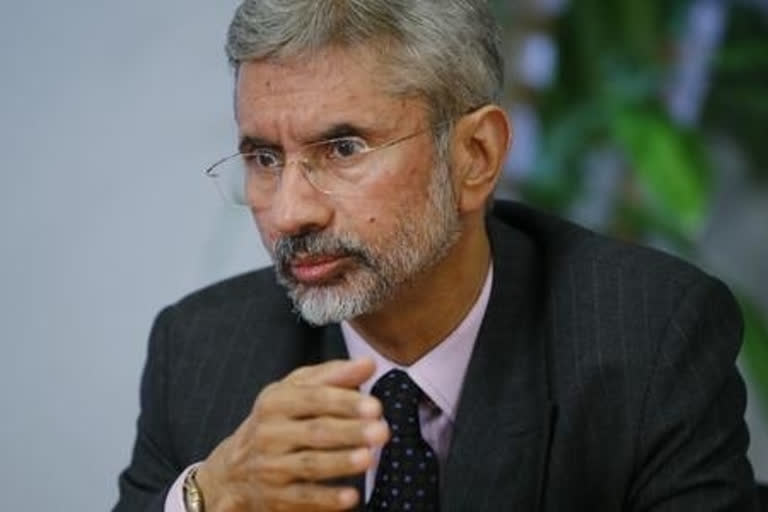New Delhi: India and China are going through an 'unprecedented' situation, External Affairs Minister S Jaishankar said on Thursday, referring to the prolonged border standoff between the two countries in eastern Ladakh.
Speaking at a virtual conference of the World Economic Forum, the external affairs minister, at the same time, said the border row happens to be one part of the larger issue of how India and China adjust to each other when both are rising.
The remarks by Jaishankar on the four-and-a-half-month long border standoff are his first after he and Chinese Foreign Minister Wang Yi reached a five-point agreement to resolve the issue at their meeting on the sidelines of a Shanghai Cooperation Organisation (SCO) conclave in Moscow on September 10.
Replying to a question on how the ties between the two Asian giants will move forward, Jaishankar said it is important for India and China to understand the need to accommodate each other's rise.
"We are going through, in a sense, an unprecedented situation. But if one looks at it from a somewhat longer-term, I would say this is one facet of a larger phenomenon for which both India and China have to sit down and find a solution."
Jaishankar said the challenge for the diplomacy of the two countries would be on how to adjust to each other's rise.
"It is important that they (India and China) understand the need to accommodate each other's rise; clearly they will have some common interests and many interests which are more individual, nationally-centred and that process of how to adjust to each other when both of them are rising to my mind is one of the big issues in the diplomacy of both the countries," he added.
Also Read: SAARC must deal with terrorism: Jaishankar
"The border issue happens to be one part of that problem," Jaishankar said.
On Monday, Corps commanders of the two sides held a crucial round of talks following which both sides announced a series of decisions including to stop sending more troops to the frontline, refrain from unilaterally changing the situation on the ground and avoid taking any actions that may further complicate matters.
The agreement reached between Jaishankar and Wang was the basis for the talks.
In his address at the WEF event, Jaishankar also delved on a host of other contemporary global issues including key challenges facing the world.
"We need to revise our sense of what globalisation is. The world is more nationalistic now. It was already heading that way. It has become more so," he said, adding the world economy will be more knowledge-driven in the future.
"We are looking at a more knowledge-driven economy. We need to think about the world as a much more integrated workplace then we have done typically."
The external affairs minister also said that reform in the multilateral organisations must not be blocked on the pretext of not having consensus.
He said it is important to strictly follow international rules for the world order to work properly.
"We are the largest democracy and very proud to be a democracy. But I accept that there are many countries in the world which are not democracies. One fundamental which we all should observe is rule of law," he said, without naming any country.
PTI
Also Read: India exercises its Right of Reply to Pakistan at UNHRC



